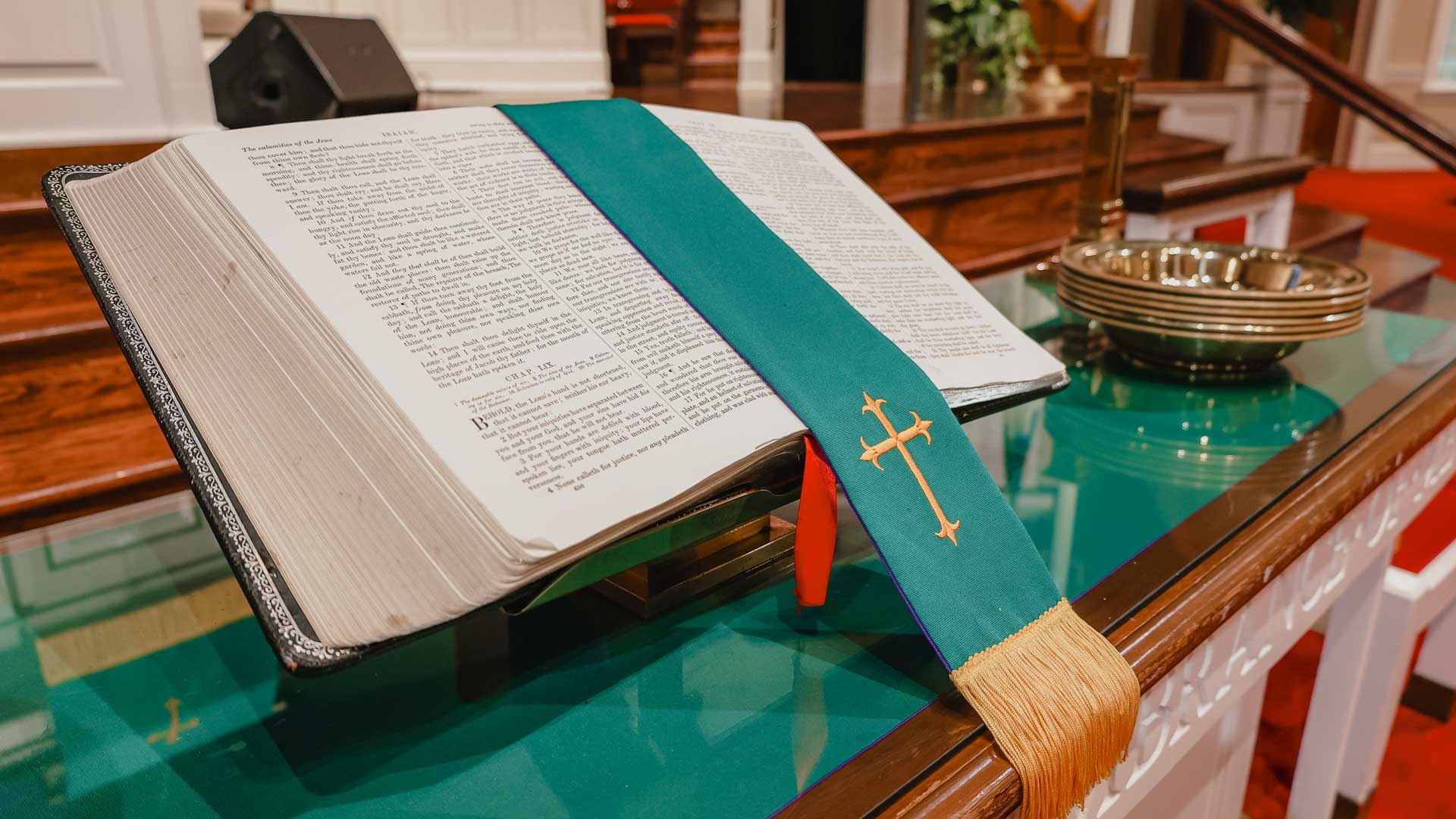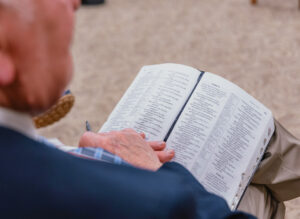 There are moments in life when we all feel like giving up.
There are moments in life when we all feel like giving up.
Not walking away from everything, but setting down the thing that feels too heavy to carry anymore. Maybe it’s a prayer you’ve prayed over and over. Maybe it’s a dream you once believed in. Maybe it’s just the hope that tomorrow might be better than today.
God’s people felt that way in Psalm 137. They were carried off into Babylon, far from their home, and they sat by the river and wept. Then they did something striking: they hung their harps in the trees. These were musicians. Praising God was what they knew best. But they couldn’t bring themselves to sing. Their sorrow had turned to apathy.
That’s a familiar feeling, isn’t it?
We usually think of apathy as laziness, but it’s not. Apathy is despair. It’s that voice in your head that says:
Why bother? Nothing will change. What difference does it make?
The Israelites gave in to nostalgia. They remembered Zion, how good things used to be, and they just stayed there. Nostalgia can feel sweet, but if you live there long enough it freezes you. I came across an odd bit of history recently: nostalgia used to be a medical diagnosis. People were so homesick it could kill them. During the Civil War, there were Union soldiers diagnosed with nostalgia, and some even died from it. That’s the power of living in the past.
And if nostalgia lingers, it breeds apathy. If apathy lingers, it turns to complacency. Complacency is the belief that all of God’s creativity peaked in the past. That’s what those people by the rivers of Babylon thought: God did great things before, but He won’t now. And if complacency lingers, it turns bitter. Psalm 137 ends with anger, rage, and even violent wishes. That’s where despair will take you.
So what do we do when life feels that way? When we’re tempted to hang it all up? The answer is simple, but not easy: sing anyway.
That’s what people of faith have always done. We worship anyway. We pray anyway. We take the next step of faith, even when our hearts don’t feel like it.
Why? Two reasons. First, because Jesus is Lord. John wrote, “Greater is the one who is in you than the one who is in the world.” The early church amazed the world because, no matter their circumstances, they sang hymns to Jesus as though He were God. And He is.
Second, because Jesus is with us. He promised, “I will never leave you nor forsake you.” Robert Louis Stevenson once told the story of crossing the Atlantic during a terrible storm. Everyone below deck was terrified, but he went up top. Holding on to the railing, he caught sight of the captain steering the ship. Lightning lit up his face — calm, steady, unshaken. Stevenson realized, If the captain isn’t panicked, I don’t have to be either.
That’s faith. When we see the Captain is still at the helm, we can keep going.
And so we come back to that image: the harp hanging in the tree. What is your harp today? A prayer you’ve given up on? A relationship? A step of faith you’ve decided doesn’t matter anymore?
Friend, don’t leave it there. Pick it up. Sing anyway.
Oswald Chambers once wrote, Leave the irreparable past in His hands, and step out into the irresistible future with Him.”
That’s the invitation of faith.
So whatever your past has been, however heavy today feels, remember this: God is not finished. Jesus is Lord of your yesterday, today, and tomorrow. And because He is Lord, you can trust Him with it all.
Pick your harp back up. Sing anyway.


 There are moments in life when we all feel like giving up.
There are moments in life when we all feel like giving up.